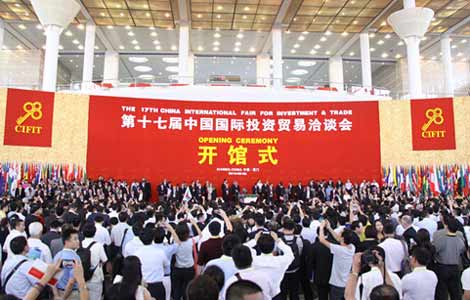Growth range leaves leeway for reforms
Updated: 2013-09-12 09:28
(Xinhua)
|
|||||||||||
DALIAN - While the world watches for recovery signs in the world's second-largest economy, Chinese Premier Li Keqiang's emphasis on "reasonable range" growth underscored the government's resolve to push forward reforms and balance growth speed and quality.
At the opening ceremony of the Annual Meeting of the New Champions 2013, also known as Summer Davos, Li described the reasonable growth range he first proposed in July as a benchmark for policy adjustments. This range is marked by a lower limit designed to ensure steady growth and job creation and an upper limit meant to avert inflation.
"As long as the economy runs within the reasonable range, we will keep macroeconomic policies generally stable and focus on shifting the growth model and structural readjustment," Li said.
His remarks assured the outside world that China's economy is not losing control and underscored the government's intent to capitalize on a slowly stabilizing economy in order to carry out restructuring and reforms for the long-term good, analysts said.
"Pure pursuit of a high growth rate is not conducive to economic transformation. If the economy goes beyond the upper limit, China should rethink its policies," said Zhang Yansheng, secretary general of the Academic Committee of the National Development and Reform Commission, adding that a range between 7 to 7.5 percent would be ideal for China's balancing act.
In Wednesday's speech, Li said China's current growth is at a "medium to high rate," recognizing that China has entered a new stage divorced from the double-digit expansion of the past decade.
The focus now should turn from headline growth to other detailed economic indicators measuring quality and efficiency, Zhang said, arguing silver linings can be found in last year's growth, even though the economy is at a 13-year low.
He cited fast employment growth, the greater role of consumption, and steady growth of the service sector as evidence of a gradually transforming economy.
At the ongoing Summer Davos Forum, Dr. Hans-Paul Burkner, chairman of the Boston Consulting Group, said China needs more balanced growth between the different parts of society and more consideration for people's well-being, such as health, environment and services.
"In general, it is about opening up the economy further, so that there are more opportunities for private initiatives. Given the enormous talents China has, this is going to create further strong momentum for the whole country and economy," said Burkner.
Today's Top News
Wang tops Hurun wealthy list
Foreign Ministry dismisses Philippine accusations
Russia proposal likely to avert US airstrikes
EC: Financial recovery 'within sight'
Li stresses transformation of economy
Ties with Kyrgyzstan upgraded
Tailored sermons proposed
China's global firms face 'trust gap'
Hot Topics
Lunar probe , China growth forecasts, Emission rules get tougher, China seen through 'colored lens', International board,
Editor's Picks

|

|

|

|

|

|





